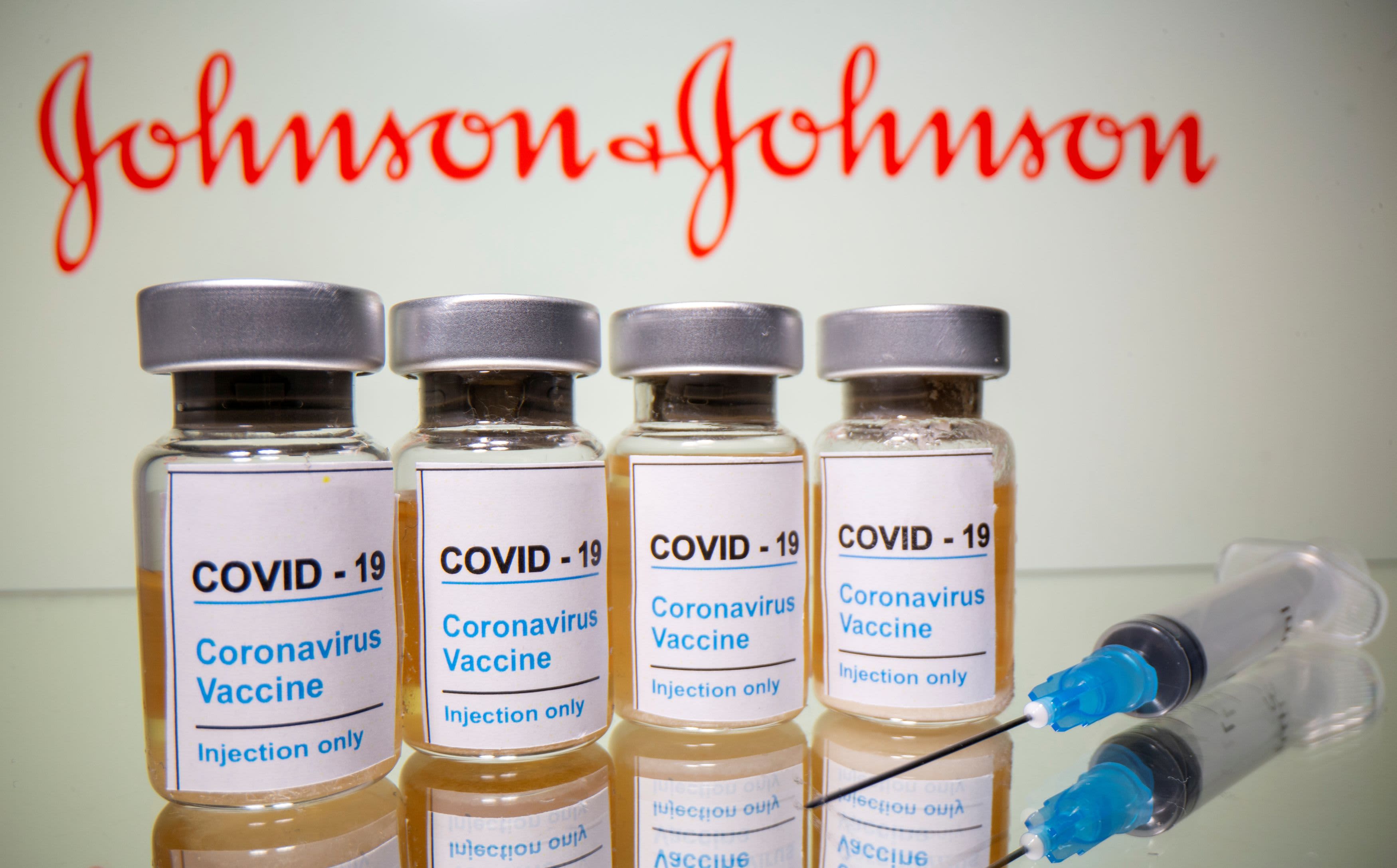Johnson & Johnson Coronavirus vaccine illustration
Dado Ruvic | Reuters
Johnson & Johnson said Friday that its one-dose coronavirus vaccine was 72% effective in protecting against Covid-19 in the United States. The vaccine, however, was less potent in other regions, it said.
The highly anticipated results were based on 468 confirmed Covid-19 infections among the phase three trial’s more than 43,000 volunteers, according to J&J. The company said the trial includes those infected with B.1.351, the new, highly contagious strain found in South Africa.
The level of protection varied by region, J&J said, with the vaccine demonstrating 66% effectiveness overall, 72% in the United States, 66% in Latin America and 57% in South Africa after four weeks.
“We’re proud to have reached this critical milestone and our commitment to address this global health crisis continues with urgency for everyone, everywhere,” J&J CEO Alex Gorsky said in a statement.
J&J said the vaccine was 85% effective in preventing severe disease four weeks after vaccination in all adults. Effectiveness against severe disease increased over time with no cases in vaccinated participants reported after day 49, according to the company. Protection was consistent across race and age, including those over the age of 60.
The vaccine was well tolerated, with no significant safety concerns related to the vaccine reported, J&J said. There were also no reports of anaphylaxis.
U.S. officials and Wall Street analysts are eagerly anticipating the authorization of J&J’s vaccine, which could happen as early as next month. Public health officials and infectious disease experts say world leaders will need an array of drugs and vaccines to defeat the virus, which has killed more than 400,000 Americans in about a year.
The Food and Drug Administration has indicated it would authorize a vaccine that’s safe and at least 50% effective. The flu vaccine, by comparison, generally reduces people’s risk of getting influenza by 40% to 60% compared with people who aren’t inoculated, according to the CDC.
If J&J’s vaccine is authorized by the FDA, it would be the third approved for emergency use in the U.S. behind the Pfizer–BioNTech vaccine and Moderna’s. Pfizer’s vaccine was authorized by the FDA on Dec. 11, and Moderna’s was authorized a week later on Dec. 18.
Unlike Pfizer’s and Moderna’s authorized vaccines, which require two doses given about three to four weeks apart, J&J’s requires only one dose. That means patients will not have to come back for another dose, simplifying logistics for health-care providers. Additionally, J&J has said it plans to ship the vaccine at between 2 to 8 degrees Celsius, which is about 36 to 46 degrees Fahrenheit.
Pfizer’s vaccine needs to be stored in ultra cold freezers that keep it between negative 80 and negative 60 degrees Celsius, or between negative 112 and negative 76 degrees Fahrenheit. Moderna’s vaccines need to be shipped at between negative 25 and negative 15 degrees Celsius, or negative 13 and 5 degrees Fahrenheit.
The Department of Health and Human Services announced in August that it reached a deal with Janssen, J&J’s pharmaceutical subsidiary, worth approximately $1 billion for 100 million doses of its vaccine. The deal gives the federal government the option to order an additional 200 million doses, according to the announcement.
This is a developing story. Please check back for updates.
